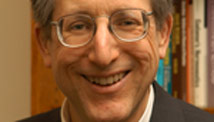Free speech helped avert Quran burning

- Jack Balkin says the Rev. Terry Jones said he'd burn Qurans, was denounced, backed down
- Why? First Amendment protects his right to his action, but also encourages others to speak out
- Incident shows how U.S. free expression works, he says; social norms evolve, prevail
- Balkin: Best response not to punish but to condemn actions as against U.S. traditions
Editor's note: Jack M. Balkin is Knight Professor of Constitutional Law and the First Amendment at Yale Law School. His latest book, edited with Reva B. Siegel, is "The Constitution in 2020." He blogs at Balkinization.
(CNN) -- The Rev. Terry Jones, the leader of a small congregation in Florida, recently announced he would burn copies of the Quran on September 11. A broad spectrum of figures in public life, including President Barack Obama and Gen. David Petraeus, urged him not to.
And soon, he said he wouldn't, offering a face-saving excuse.
What explains this turn of events? The answer could well be the First Amendment to the U.S. Constitution, the very same amendment that protects Jones' freedom of speech. The First Amendment allows -- in fact it encourages -- people to disagree with what Jones planned and to condemn it in public.
Whether one likes it or not, Jones has a First Amendment right to burn the Quran if he wants to. In 1989, the Supreme Court overturned a criminal conviction for burning an American flag, despite concerns that it would greatly offend people, including American veterans. If you can't be punished for burning an American flag, it's hard to see how the government could punish you for burning the Quran, the Bible or any other venerated object you own. And, unlike a Klansman who burns a cross on a black family's lawn, Jones was not threatening violence, which is unprotected by the First Amendment.
 Video: Confusion over Quran burning plans
Video: Confusion over Quran burning plans  Video: Imam: Pastor 'absolutely wrong'
Video: Imam: Pastor 'absolutely wrong'  Video: Obama: Burning endangers troops
Video: Obama: Burning endangers troops  Video: Afghans protest possible burning
Video: Afghans protest possible burning And yet, despite the government's inability to impose any kind of sanction, Jones stood down -- for now at least. The reasons why tell us a lot about how the American system of freedom of expression works in practice.
Public opinion may be a far more effective remedy than legal sanction; a criminal prosecution might have made Jones a martyr to his followers. Under the force of public reason he was shown for what he was -- a petty bigot.
In some European countries, Jones could have been punished for a hate crime had he followed through with his threat. These criminal laws are designed to enforce tolerance and prevent distrust and enmity between different groups. But the American constitutional system secures political and religious tolerance in a different way: It relies on more speech to counter the speech that is hateful and corrosive to democracy.
It's important to remember that political and religious tolerance is not a natural condition in human history. Much blood has been shed because people detest each others' race, politics and religion.
Indeed, the system of tolerance in the United States for people of different races and religions -- and now for people with different sexual orientations -- has resulted from long struggles in culture and politics. It has resulted from Americans' ability to protest, state their views in public and win people over. Tolerance for gays, for example, emerged because gay rights advocates used their First Amendment freedoms to organize, make their case and persuade other people against bigotry.
Instead of having the government punish people who say intolerant things, the American system relies on people to criticize each other for violating what they think are the proper norms of tolerance and equal respect in a democratic society. People will sometimes disagree about these norms, but that disagreement is also part of free expression.
This system is by no means perfect, and its imperfections seem most obvious when you are on the receiving end of another person's hate-filled screed.
Nevertheless, its advantage is that it allows social norms to evolve and adjust to new problems and new circumstances in ways that rigid criminal penalties cannot. It allows freedom for obnoxious people, but it also lets people object to demagogues and hate mongers and turn the weight of public opinion against them.
The best response to people like Jones is not to throw them in prison. Rather, it is to criticize their actions as contrary to our country's most hallowed traditions. Over the long run, using freedom of expression to promote tolerance and denounce intolerance is how Americans have preserved their experiment in democracy.
The opinions expressed in this commentary are solely those of Jack Balkin.

No comments:
Post a Comment
All slanderous comments will be deleted .Comments that include personal attacks, and antisocial behaviour such as spamming and trolling; will be removed. You are fully responsible for the content you post. Please be responsible and stay on topic.